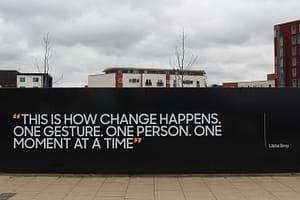Jun
19
2023
Ending counselling sessions with many clients can be a bit strange.
When working with organisations, it is often the case that we have come to the end of the allotted sessions, and we have no choice but to finish the...
Apr
30
2023
I often get asked about the difference between counsellors, psychotherapists, and psychologists. At the risk of raising the ire of each group, I would suggest that when each is highly qualified, grounded in research, and experienced, the answer is...
Apr
08
2023
The grounded counselling approach, although blending solution-focused counselling and coaching, is part of a wider slow counselling drive. Rather than using the now 'accepted' approach of forcing data, usually through surveys or questionnaires -- most of which information leads...
Feb
27
2023
With so many counsellors sitting in the room straight-laced and distant, it might sound like heresy to suggest counselling should be fun, but in this post, that is precisely what I will argue.
Although ‘counselling’ and ‘fun’ may not be...
Feb
26
2023
It is wrong to assume that one approach to counselling will fit each client. I have had male clients for whom a feminine approach to counselling helps them more and female clients for whom a masculine model works better....
Feb
25
2023
A chapter in an edited book on grounded theory (Glaser, 1994) changed my perception of grounded theory and my development of the grounded counselling approach. The chapter was titled: "Grounded Therapy", written by Odis Simmons.
I first read Simmons' work in the...
Feb
24
2023
When we talk about a counselling method, or approach, many courses teach trainee counsellors about four or five significant counselling methods. These major approaches are Psychoanalytical (think Freud), Behavioural, ClientPerson-Centred, Gestalt, and Psychodynamic. However, a professor I know at the University of Bristol, Sheila Trahar,...




